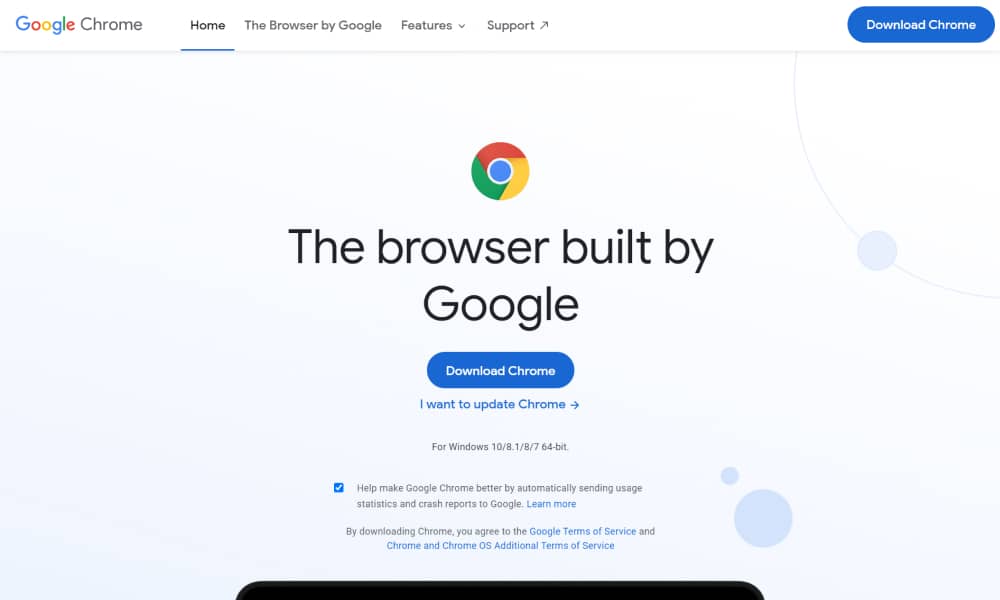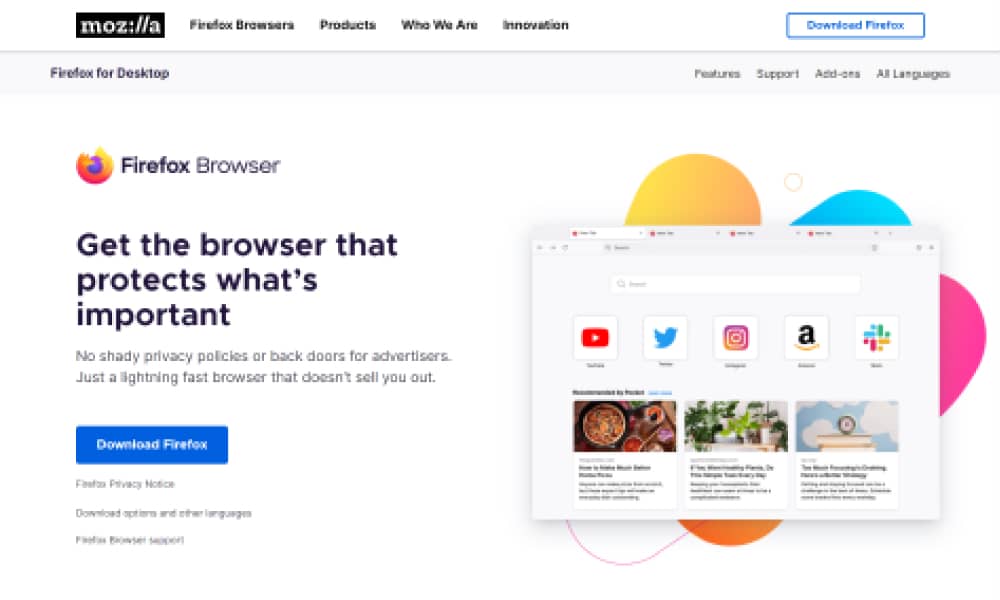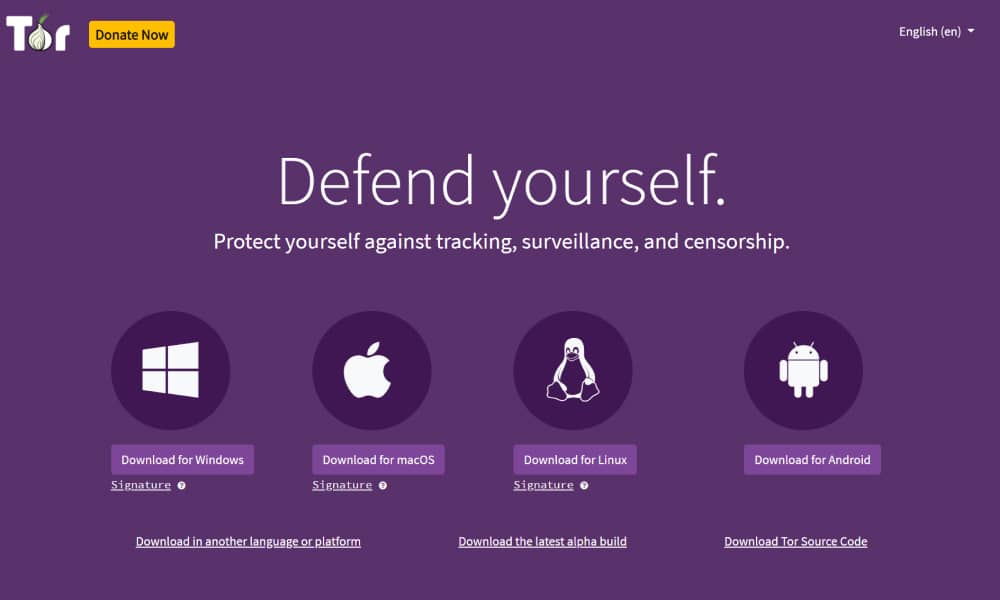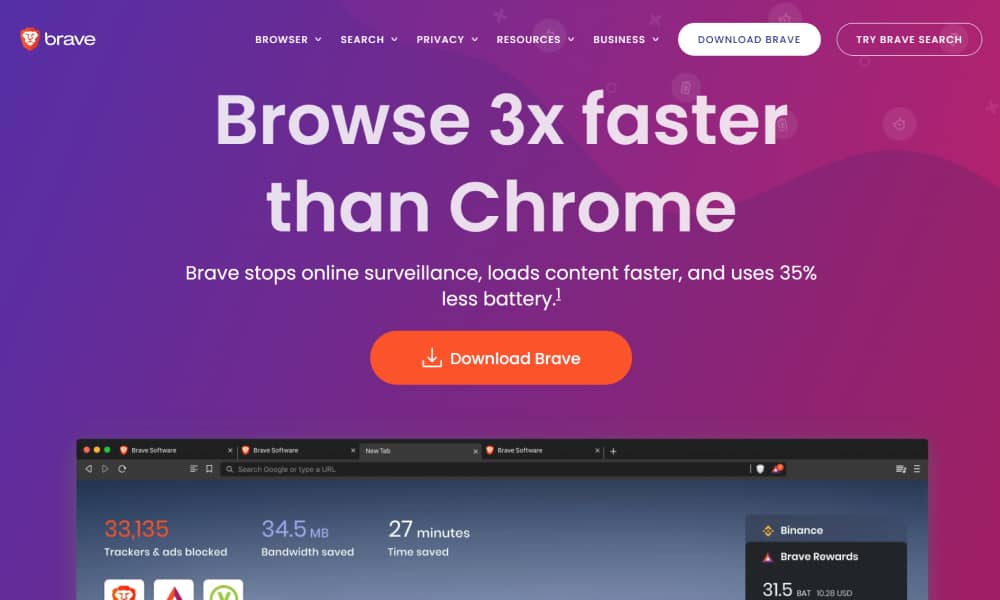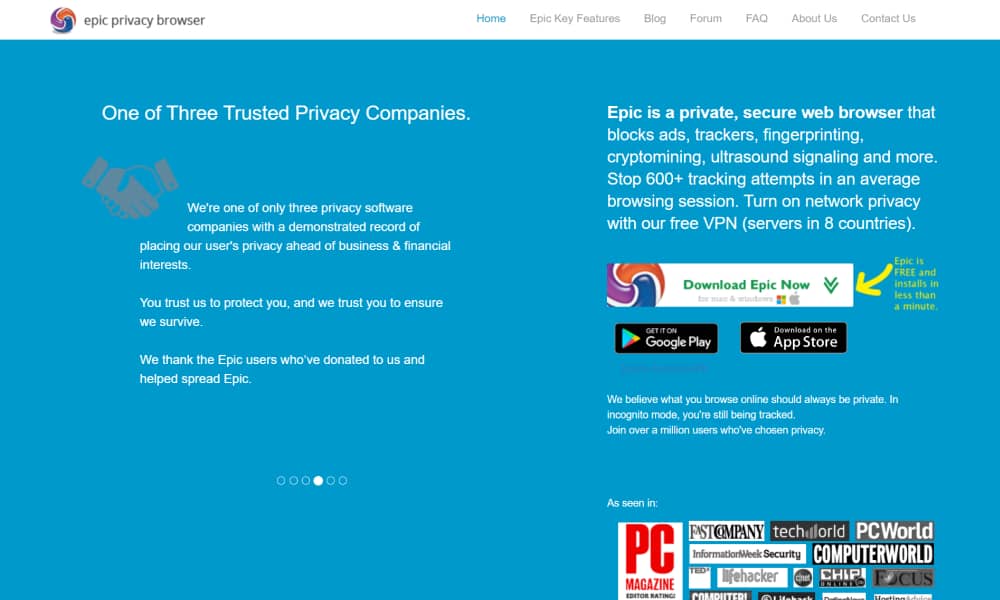We all have that all-time favorite browser that we spent our entire time looking through websites and search for all sorts of things, starting from the nearest McDonald’s restaurant to academic research papers on global warming. Web browsers are the portal to the power of knowledge and information that provides us with the data we need skills, order online, or simply looking out for inspirations every once in a while.
The internet has captured our everyday lives by storm. But how secure is the web? Of course, while surfing through the surface of the web you will encounter websites where you will need to place delicate information about yourself or information about your financial accounts, and you must be sure that you are running on a secure browser to perform these activities, otherwise, you will be a victim of cyber attack.
As we’ve seen it happen almost every day. According to recent studies, as of 2020, the average cost of a single data breach across all industries worldwide stood at nearly 4 million U.S. dollars. These figures do seem daunting, and to make sure you are on the safe side of the web, here’s our take on the topmost secure browsers to use in 2021 that protect your privacy and provide web browser security.
And if you are a website owner you will most definitely like to have your website be as secure as possible. In such a case please follow our guide on website security.
What makes a Browser Secure?
As we are talking about the most secure browser and how much do they protect your privacy, we must keep in mind that cybercrimes are becoming more and more sophisticated and a secure browser will need to protect you from a wide variety of security and privacy threats.
You must know that not all browsers will give your security and privacy out-of-the-box. As a user sometimes it is your responsibility to provide web browser security by configuring privacy and security settings that are made available to you on your browser. It is widely known that by default web browsers will keep track and store
- Browsing history: all the websites you visit
- Login credentials: usernames and passwords
- Cookies and trackers: these are placed on your browser by the sites you visit
- Autofill information: names, addresses, phone numbers, etc.
Most browsers will contain lots of private information that can be exploited by third parties like, what sites you visit, store cookies, or even ask you to save your passwords.
The website might also get access to more detailed information like your location, the ability to display popups, and more. This is why it is better to keep an eye on who is the most secure browser to use.
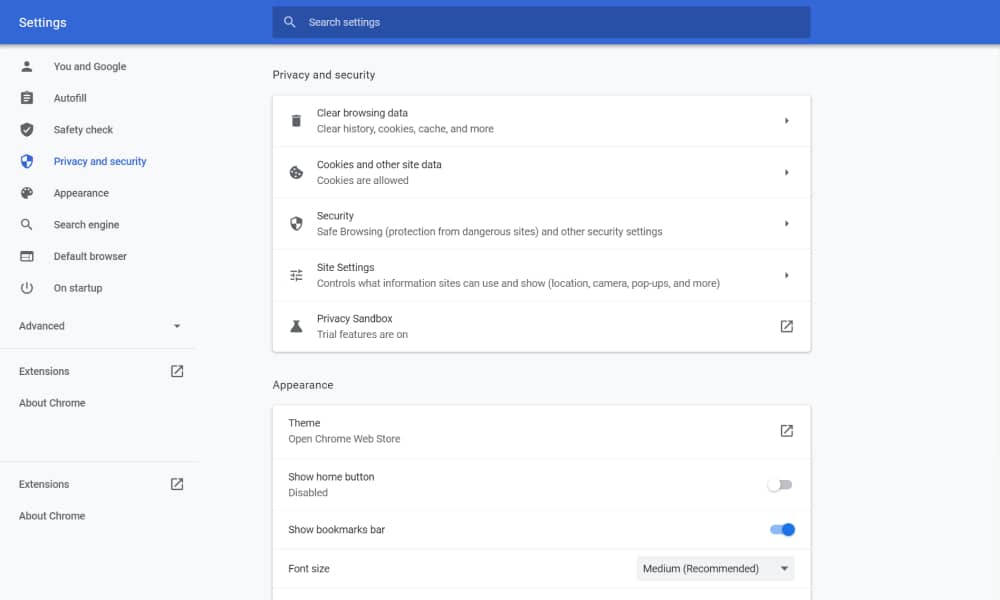
A more secure browser translates into a diverse set of options to protect your data and keep your anonymity secure. And to all of those who are saying that I use Incognito Mode, that means my data is secure, sorry to break it to you, but your data is not safe as your IP address and location will still be visible.
This mode usually just hides your activities from the local machine’s history. The only way to protect your privacy is to use a secure browser. Now let’s take a look at the best most secure web browsers to protect your privacy and keep your data safe.
The Criteria for Secure Browsers
We’ve compiled a list of the best and most secure browsers that protect your privacy and apply all the best practices to ensure safer browsing overall for all its users. As cyber crimes have become more apparent, you should keep in mind that there are a few features that you can look out for that makes the entire browsing experience more secure while searching on the web. And because some browsers are more secure than others here are a few criteria or features that you can look for in a secure browser:
- Warnings about websites and downloads that they deem as unsafe
- Secure design as most developers will integrate security measurements into the architecture of their browser’s software
- Users will have access to certain security and privacy features that they can configure
- Enabling you to disable cookies
- The ability to disable popups by default for most websites
- Giving you access to your browser’s history and cache
- Proving you with the option to disable scripts either globally or for specific websites
- Giving you access to disable redirects by default for most websites
Some browsers will apply more rigorous privacy and security features that come built-in with the browsers, yet is it better to manually configure the setup when using a new browser regardless of which software you are using. Although now browsing on the web has become a safer environment, yet we will present you with the most secure web browsers that you can install to perform your daily tasks.
The Most Secure Web Browsers for 2021
Keeping your data and your private information secure is one of the most important things that you should keep an eye on. We’ve discussed the primary features that make for a secure web browser as well as the criteria you should pay attention to in order to make sure your privacy is protected.
We will now take a closer look at the most secure browsers and the most popular ones that you can use. Note that the order of the browsers is not made based on who is the most safer one, we will be discussing in-depth for each of the browsers and then give a final verdict at the end.
If you have been using internet browsers, Chrome is not one you can sleep on, as it is one of the most popular and used browsers. Chrome provides its users with a beautiful and intuitive interface as well as tons of flexibility that provide this browser the intrinsic popularity that’s high on-demand.
Chrome is undoubtedly among the leaders, especially when it comes to market share. Some of the best features that Chrome includes are most definitely
- Constant updates for its security features
- You can request the website not to track you
You can block popups and scripts - Clear warnings when visiting an unsafe website
- Add-on to increase and improve the privacy
- Get notifications if your stored password is exposed
- You can block cookies partially or globally
Chrome is overall a secure browser as it gives you configurations that allow you to take control over your privacy and tweak a few settings relating to your browsing experience on Chrome. The browser also takes regular updates of its security features which is one great feature.
To know more about Chrome’s security features, you can dive deep into its privacy policy as well as choose from the many amazing extensions to protect your privacy and keep your data safe.
Chrome will also give you access to the incognito mode where you can browse the web without the browser storing history or cookies for every search. However, seems like Chrome is lacking in privacy, and the browser is known to collect data, tacking, and other privacy violations.
The primary resource of data collection in Chrome is so that the information is used for profiling ad profiting. Chrome can be a secure browser depending on the configurations, but you still need to sign in to your Google account and the company tracks a lot of information about you.
Another quite popular browser globally used by millions of people due to its high convenience and fast performance makes it a favorite choice browser. Mozilla Firefox is a lightweight solution that also offers excellent security and data protection, which was and still is one of the best selling points of this browser.
Firefox is the only mainstream open-source browser whose code can be thoroughly researched and scrutinized by anyone with the proper skillset. This way you can always make sure there are no hidden widgets inside.
Firefox has had its glory days back in 2010 where it took the reign with more than 31% of the global browser market share.
Although these figures have decreased since then, Firefox is still one of the most secure browsers that offer an extensive configuration set to make sure you are on the safe side of the web browser security. Firefox’s outstanding collection of security features include:
- Private browsing mode
- Anti-fingerprinting protection
- Provides reports on websites trying to track you
- Pop-up blocking
- Allowing you to stop sending your data to Mozilla
- Provides you control over website permission
- Forcing all connections to load over HTTPS
Firefox also has an impressive collection of security-focused add-ons that can be used to make its experience safer. You can use Firefox in a variety of software like Windows, macOS, Linux, Android, and iOS. One great thing about Firefox is that it is being updated regularly, which is a very basic feature to have that ensures privacy and data protection.
Keep in mind to make sure to disable the telemetry function because it sends your usage and performance data to Mozilla. Firefox might contain some functions concerning users who are driven on privacy like Pocket, Telemetry, and startup profiling.
Yet, all these settings are easily manageable as you can tweak their settings and be good to go. Firefox is one of the most secure browsers on the web and ensures your privacy is protected as the company behind it is big on privacy.
We’ve compiled a list with the best and most secure browsers for 2021, it is imperative we mention the Tor Project, an extremely private web browser that is not among the most popular web browser yet offers data privacy protection out-of-the-box. Under the hood, Tor Browser is a modified version of Firefox specifically designed for use with the Tor network.
This makes Tor one of the most secure browsers and a great choice for when you want to keep your data private and protected, including the use of extra patches to enhance privacy and security.
Created by Edward Snowden, Tor is arguably the best-known privacy-focused browser. All the configurations make this browser one of the most secure web browsers you can use. But with this privacy-drive approach, there also comes a price to pay, as the browser lacks in user-friendliness ( and it’s not supposed to be one either). Some best features of Tor that give its prominence as one of the most secure browsers are:
- The browser uses volunteer relay services, thus making it difficult for someone to trace you
- You disable the trace by default
- You can also disable scripts on all websites
- It prevents unauthorized snooping
- Comes with pre-configured security features,
- Tor will not track your browsing history
- Delete all cookies after each session by default
Besides all the amazing privacy-driven features, Tor is an excellent choice for avoiding fingerprinting. Tor essentially has its own method of connection called onion routing. It’s named that because it has layers. Looking at all the features, it is obvious that Tor is not convenient as a day-to-day use browser as it won’t keep you logged in on your accounts for instance.
The downside to Tor is that the browser might be slow even if you have a strong connection. The system of Tor is not concentrated within the hands of one company, it is also difficult to shut it down or intercept traffic, thus making your connection speed quite low. Tor aims to protect your privacy rather than focusing on security. It does not have anti-malware technology and blocks plug-ins by design.
Moving on with our list of the best and most secure browsers we include Brave, as it helps you browse your search results with speed, efficiency, and security. Brave is one of the best all-around secure browsers that uses Chromium, Google’s open-source browser, which integrates strong sandboxing techniques. One other amazing security feature of Brave is that it features automatic HTTPS upgrading and disables plugins by default.
Brave is a new browser established in 2019 and shares only a small portion of market shares but nevertheless offers new and exciting features that other browsers lack like its closely linked advertising platform and cryptocurrency. Brave is a new Chromium-based browser that packs quite a punch of features including:
- Built-in ad blocker
- A password manager feature
- Blocking third-party ads by default
- You can block scripts from all websites
- One-click anti-fingerprinting functionality
- Private browsing similar to Tor
- It automatically upgrades your connection to HTTPS
Brave also supports almost all Chrome extensions. While this is great for making the browser more convenient to use and more functional, but keep in mind that you should always use extensions that respect your security and privacy. Brave is an open-source browser and has detached itself from Google, there are still some who are skeptical of Brave and do not trust its Chromium base.
Even though Brave uses an ad-blocker, this feature is somewhat controversial as it disables ads by default, it still shows its advertisements, which means you are being tracked. You can disable ads promoted by the Brave browser but still conflicts with its stated privacy standards.
Epic is another selection on our list as one of the most secure browsers to use as it promotes a security-driven experience for all its users starting from the very beginning. It’ll send “Do Not Track” requests, block cookies, ads, and data-tracking web analytics systems right from the start.
You can configure the browser’s settings to make it more convenient for use, but it will rain on your privacy expenses. Epic takes your privacy very seriously and offers an unmatched secure experience, delivering on the premise of “extreme privacy”. This means there is no auto-syncing, no spell-check, no auto-fill, no plug-ins.
All these features and more will be disabled by default or not available at all and it also does not store your history, login data, databases, or other info. The main features that Epic includes are:
- Extreme privacy out-of-the-box
- It routes all web traffic through a proxy server, so websites don’t see a user’s true IP address.
- It clears the browser history after each session
- It automatically blocks trackers and cookies
- Epic also blocks certain types of real-time communications calls that have the potential to leak your IP address
- It gives reports on who is tracking you
- Built-in cryptocurrency mining scripts
One small drawback of Epic is that it is based on Chromium and it is not an open-source browser, meaning it is not available to be scrutinized by the public. As Epic blocks intrusive cookies and plugins automatically, this means the browser is not made for convenience, but privacy only.
Epic as a secure browser does not allow add-ons, so users can’t enjoy password managers, mail checkers, or other conveniences. All these settings and configurations out-of-the-box show how determined the creators of Epic are and how much they take into account the web browser security to have their users their peak experience without being concerned that their privacy will be violated in any manner.
Final Thoughts
We’ve come to the end of this article, and we hope that by now you’ve made your choice of the best and most secure browsers. We’ve collected all the best browsers that protect your privacy and that offer you bountiful configurations to further adjust these privacies.
Chrome and Mozilla are the most used and popular browsers that offer convenience and security out-of-the-box. While Tor, Brave, and Epic are all about security and might not be convenient for the average user as it does not provide a user-friendly interface They maximize the privacy of the user and only focus on this approach.
Please leave in the comments below your preferred browser to use when you wish to protect your privacy and keep you secure while searching for specific results.

